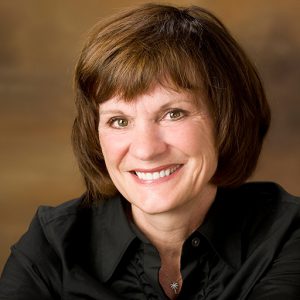How Graduate Learning Needs to Change
 By Dr. Debbie Treise
By Dr. Debbie Treise
Senior Associate Dean, Division of Graduate Studies and Research
How will teaching in the graduate environment change over the next 10 years?
In both master’s and Ph.D. programs, the question is more about how learning will and needs to change, rather than predicting changes in actual course content or delivery method. There are two sides to this coin: changes in master’s learning and changes in Ph.D. learning. They have some similarities but some striking differences.
Ph.D.
The Ph.D. is a research degree. Traditionally doctoral students have been primarily focused on pursuing a research agenda, getting published, networking at conferences, etc. This emphasis reflects ideal preparation for an academic position. However, in the past five years, more and more doctoral students are looking to prepare for careers in our professions. The curriculum of the future needs to reflect that dual approach. Research will continue to be important, but students’ research may be much more applied than in the past. We understand this in our College, so we offer immersion experiences in VR labs, our multimedia properties, or experimental and focus group labs, so students can better decide their career path armed with both experiences and future technology knowledge.
Further, doc students at some programs across the country, find it disconcerting that they will graduate, go into academia, and will not be trained to teach, and will not have taught a class on their own. At UF, we take the 360-degree approach to training doc students. Teaching and research are inexorably bound together – one informs the other. They all take a required doctoral-level pedagogy class along with their research methods classes under the philosophy that the best teachers are informed by current research. They need to learn both.
Whichever route they choose, the bottom line is doctoral students will need to learn to be able to disseminate and translate their research to various audiences. We have that covered.
Master’s
The Master’s can be either a research/Ph.D. preparation degree or an applied degree focusing on the professional job market. Therefore, instead of struggling to decide whether to provide a professional versus an academic focus, we incorporate both. Why? Because many master’s students wish to pursue a Ph.D. or secure a job in a research-related company. But others wish to enhance their applied skills, increase their professional job marketability and receive more current training.
What do they all need to learn? Since our professions are now more blended into one another, master’s students will need a silo-less learning environment that reflects the real world. They also need curricula with an international focus to learn about the increasingly global business world.
Internationalizing our curricula also means attracting the top global talent to our graduate programs. Helping these international students succeed will require accommodations in our teaching approaches and content, a challenge we’ve already begun to address. Three years ago, we instituted a Communicating for Success class (aka Boot Camp) for international master’s students to do just that.
Our fields are changing sometimes too fast so that today’s skills are dated next week. Learning the new approaches has never been more crucial.
